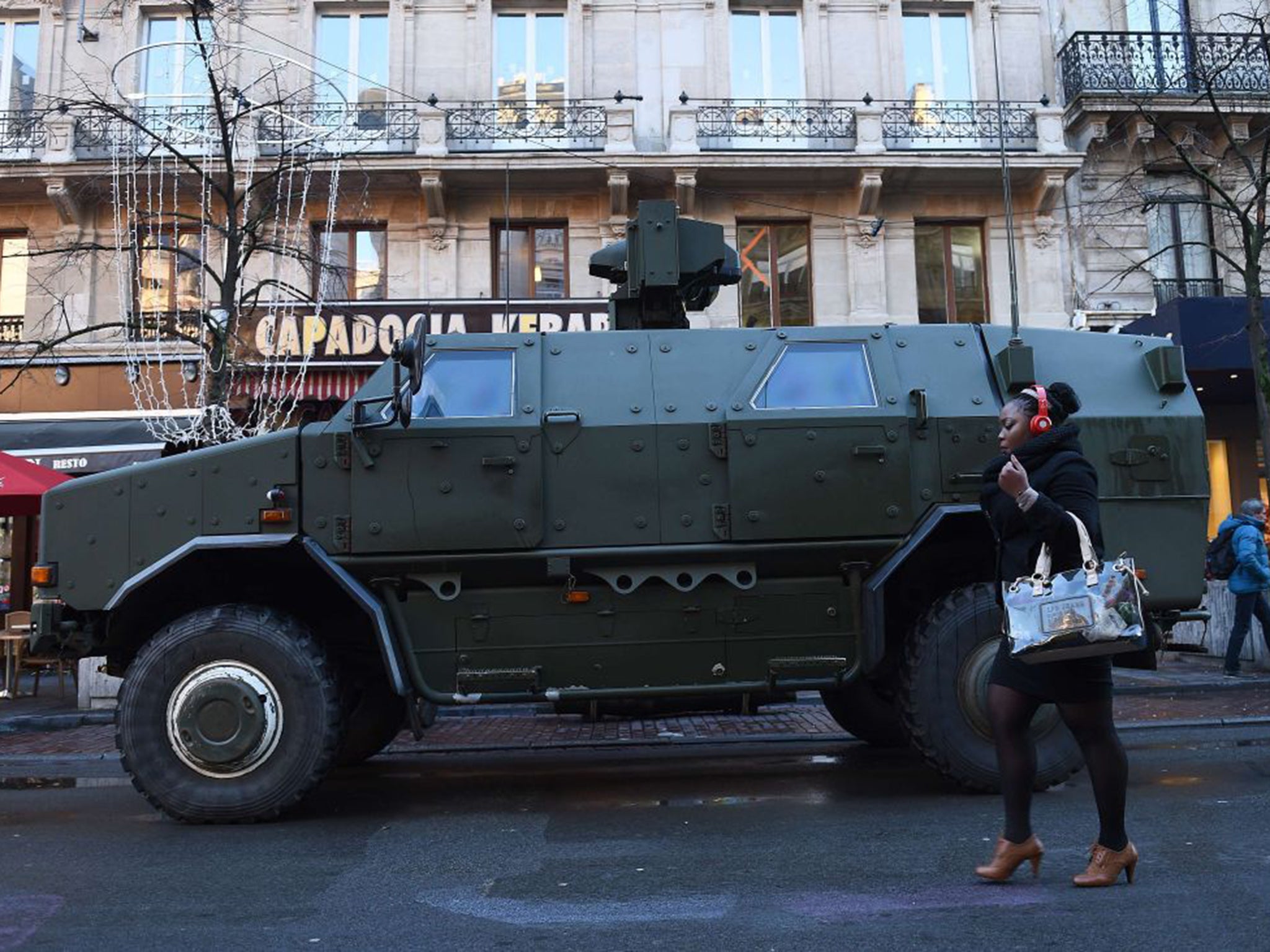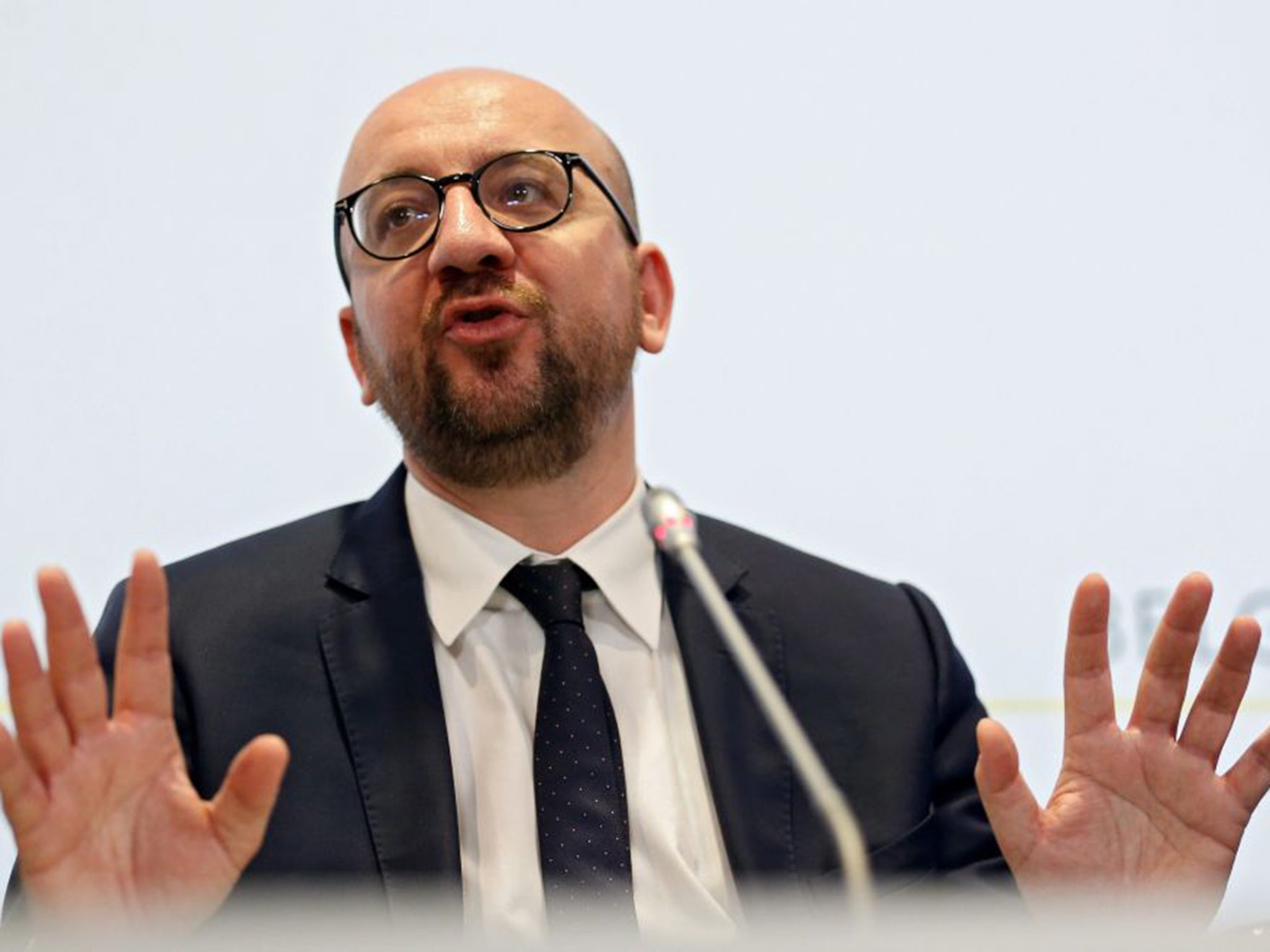Paris attacks: Brussels to remain on lockdown for six more days as fourth suspect charged
Belgian Prime Minister says risks in the capital are still severe enough to merit the highest threat level

Your support helps us to tell the story
From reproductive rights to climate change to Big Tech, The Independent is on the ground when the story is developing. Whether it's investigating the financials of Elon Musk's pro-Trump PAC or producing our latest documentary, 'The A Word', which shines a light on the American women fighting for reproductive rights, we know how important it is to parse out the facts from the messaging.
At such a critical moment in US history, we need reporters on the ground. Your donation allows us to keep sending journalists to speak to both sides of the story.
The Independent is trusted by Americans across the entire political spectrum. And unlike many other quality news outlets, we choose not to lock Americans out of our reporting and analysis with paywalls. We believe quality journalism should be available to everyone, paid for by those who can afford it.
Your support makes all the difference.Belgium is to remain on high alert for at least another six days, it has been confirmed. At the same time, Belgian authorities charged a fourth suspect with terrorism offences related to the 13 November assault on Paris.
The Belgian Prime Minister, Charles Michel, said the risks in the capital were still severe enough to merit the highest threat level, ongoing since Saturday. “I can confirm that the threat is serious and imminent,” Mr Michel said, adding that the heavily armed soldiers and police would stay in place, guarding key buildings across the city until at least next Monday.
However, Mr Michel said the Brussels metro system would also re-open gradually from tomorrow after four days of closure. The city’s schools and universities would also reopen tomorrow. “We have tried everything to get back to normal life,” he said.
The announcement came after a dramatic 24 hours in which 21 people were arrested in Belgian counter-terror raids across the country. However, Europe’s most wanted man, Salah Abdeslam, appeared to have slipped through the dragnet, which included searches in houses in the street behind the Grand Place, the historic heart of Brussels.
Abdeslam, who has been described as “armed and dangerous”, went on the run after taking part in the massacre of 130 in Paris on 13 November. He is thought to have both guns and a suicide belt, and could be poised to blow himself up.
In France, police said an explosive belt had been found in the southern Paris suburb of Montrouge, by a street cleaner in a pile of rubble. It was being analysed by police.
Belgium’s Interior Minister, Jan Jambon, told the RTL network that Abdeslam “must have a lot of support on our territory. That’s why all these searches being conducted at the moment are important.” He admitted that the lockdown was disruptive, with residents struggling to get to work by bus and bike, but warned: “We will continue until we clean up this mess.” One of the 16 people arrested in Brussels late on Sunday has been formally charged, while the remaining 15 have been released. The arrests had come from a wave of operations that took in 19 house searches in six Brussels communes. Further house searches took place in the southern city of Charleroi, just 20 miles from the French border, and later, in Liège, about 15 miles from the Luxembourg border. No weapons or explosives were found during the raids.

After the release, the Federal Prosecutor’s Office pointed out that “it is not uncommon, during large-scale search operations like the one last night, to bring in several people merely for thorough questioning or to clarify why they were found on the searched premises”. It added that the risk of finding weapons or explosives had prompted their “exceptional precautionary and safety measures”.
Many businesses allowed staff to work from home; the closures of both the metro and the schools would have prevented many from going to their offices. However, shutting the metro meant more people used their cars. One drivers’ group, Touring, said there were 331km of traffic jams this morning.
The continued state of alert has disrupted European Union and Nato activities, both of which have headquarters in the city. While EU institutions have remained open, and major meetings such as a Eurogroup meeting took place, non-essential meetings were cancelled. EU and Nato offices remained open with additional security measures.
Police also urged local Belgians and journalists not to publish any information or photos on Facebook, Twitter or other platforms during the raids. Belgians responded to the instruction with wry humour, posting cat pictures on social media under the hashtag #BrusselsLockdown.
Belgian police responded in kind by posting an image on Twitter of a bowl full of catfood, with a message: “For the cats who helped us last night, help yourselves!”
Despite the terror threats, the Davis Cup final between Belgium and Great Britain will go ahead in the city of Ghent, 35 miles from Brussels.
Join our commenting forum
Join thought-provoking conversations, follow other Independent readers and see their replies
Comments